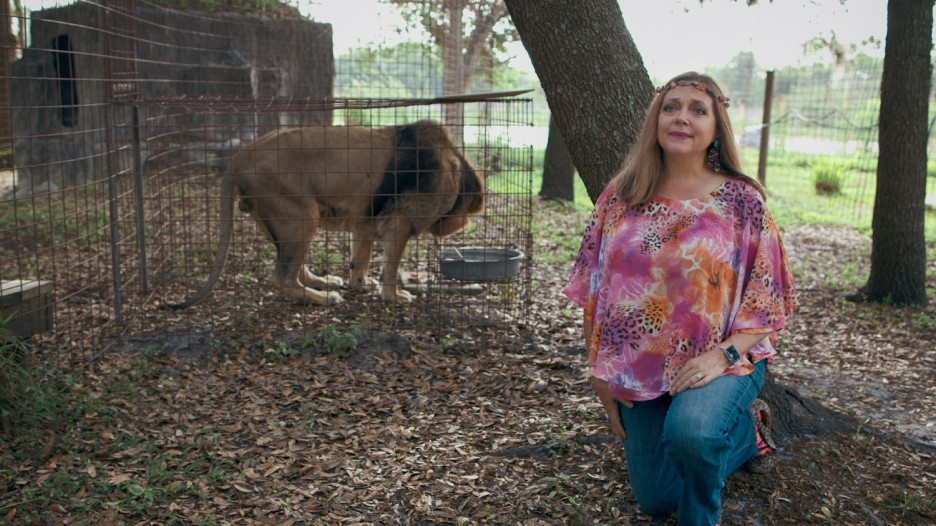What Netflix's Declining True Crime Docu-Series Viewership Indicates About Changing American Viewership Habits

A recent Variety study done with data from FlixPatrol came up with a surprising finding: Netflix's infamous true crime docu-series' viewership is declining. With the exception of "Cocaine Cowboys: The Kings of Miami" and "Tiger King 2," Netflix's 2021 true crime docu-series haven't been breaking the streamer's top 10 U.S. TV series ranking, despite Netflix releasing new true crime docu-series every month this year.
This trend sounds extraordinary because we've all probably heard the past couple years how the true crime genre has exploded in popularity, especially among women. While one might be tempted to blame over-saturation or a decline in Netflix true crime docu-series quality, the main reason behind this decline may actually indicate American audiences' pivot to scripted series, as pointed out in the Variety study. And, I agree.
So, what does the true crime docu-series downward spiral indicate about changing American viewership habits?
I have a theory.
Why True Crime Is Out and Scripted Series Are In
1. Production Is Back
Interest in scripted series may be soaring because of the increased output of scripted television that came with the comeback of Hollywood film production. Due to the COVID-19 pandemic, there was a moment when film productions were at a standstill. During this difficult time, it's possible that platforms like Netflix pivoted to true crime docu-series because these series are relatively inexpensive to make, don't require as much in-person production, and can rely more on archival footage instead.
A friend of mine is an archival researcher, which means that her job is to source archival footage for documentaries. She once told me that documentaries live or die on the quality of their archival footage. If you have a skilled archival researcher, then you can put together a powerful documentary, even if your documentary has limited original footage.
Oftentimes, true crime docu-series use news footage or photos from the time of the crime, and one-on-one interviews. These components makes true crime docu-series an ideal genre for Netflix to develop during the COVID-19 pandemic, when gathering large groups of people to film content could be dangerous.
2. We Now Have an International Library of Scripted Content
In recent years, foreign content has become runaway hits on Netflix. Shows like South Korea's "Squid Game," Spain's "Money Heist," and France's "Lupin" have become household names, proving that American audiences are finally warming up to the idea of reading subtitles. Thank goodness: Bong Joon-ho was right.
With these recent victories, Netflix is also expanding its international content by investing heavily in film industries abroad, such as with Netflix's Japanese language expansion after the success of Japan's "Alice in Borderland" scripted series. However, upon closer inspection of Netflix's international content expansion, Netflix mostly invests in scripted content, which results in a robust library of foreign scripted content.
This is not to say that Netflix makes no unscripted international true crime docu-series. I recently saw "The Raincoat Killer: Chasing a Predator in Korea," which was a fascinating, gritty look at South Korean society that's a far cry from the rosy society depicted in K-dramas like "The King's Affection." But the level of push and publicity that "The Raincoat Killer" received was nowhere near that of "The King's Affection," "Squid Game," or "Hellbound." I'm fairly sure most American Netflix viewers don't even know it exists.
3. At the End of the Day, All We Want Is a Good Story
When people get home after a long day of work, all viewers want is a good story. While true crime docu-series certainly have stories, nothing beats a well-crafted scripted series, where you get to spend an hour with characters you've grown attached to. Scripted series and their original storylines, characters, and ideas scratch an itch that true crime docu-series don't always reach.
Scripted content allows us the opportunity to explore questions we have about the human experience and the world. Because the stories are fictional, there is enough distance between the viewer from the content that viewers can feel safe delving into these ideas without feeling threatened or attacked.
Despite not being part of the true crime genre, one story that may put this theory to the test is that of the Thai cave rescue. Earlier this year, National Geographic released "The Rescue," a documentary directed by husband and wife duo Elizabeth Chai Vasarhelyi and Jimmy Chin. However, National Geographic only had the rights to the stories of the cave divers, while the rights to the stories of the Thai soccer team trapped in the cave belonged to Netflix. With these rights, the streaming giant is set to produce a limited series that adapts the Thai soccer players' story. These rival pieces of content will be an interesting test to see whether the scripted or unscripted format will be a better fit for the "Tham Luang" story.
What do you think about the decline of Netflix's true crime docu-series? Do you think these reasons are indicate a shift in American viewership preferences? Let us know! For more entertainment news and commentary, check out Enstarz! We bring you the latest on your favorite celebrities, TV shows, and films.






